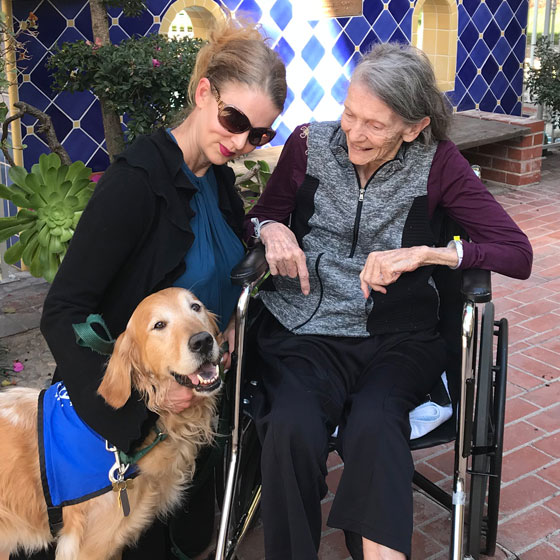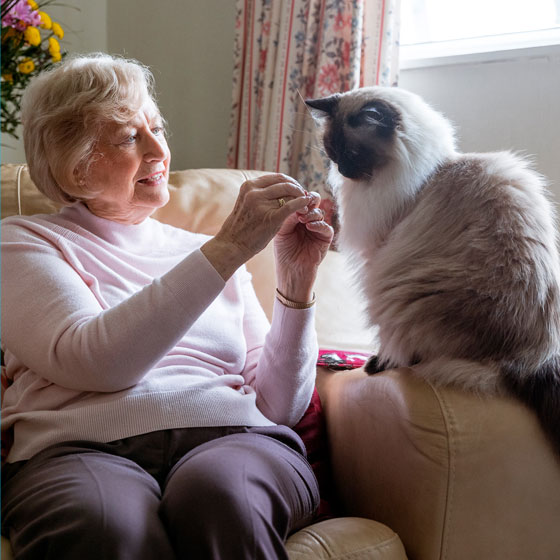The Alzheimer’s Association estimates that 5.8 million Americans are living with Alzheimer’s disease in the United States. Many of these people also own pets.
Early Stages
If you’ve just received the devastating news that you or a loved one has Alzheimer’s disease, you may feel that you need to rehome your pet as soon as you can, by whatever means possible. However, for patients in the early stages of dementia, having a pet can be extremely beneficial, reducing anxiety, depression and irritability and offering overall health benefits by encouraging social interactions and exercise.
This is a good time for family members, friends and caregivers of people with Alzheimer’s to work with the owner to create a plan for the pet’s future in case a time comes when the owner can no longer care for the pet. The most important thing is to not wait until it becomes a crisis.
Plan ahead:
- Find out the name and number of the pet’s veterinarian.
- Make a copy of vet records and microchip number.
- Help the pet owner put a plan in writing for what will happen to the pet in their absence.
- Make a list of friends or family members who are willing to take the pet down the road.
- Make a list of the pet’s likes and dislikes, including favorite toys, blankets, beds, food and treats.
- Ask the owner to set aside financial resources for the pet’s care.
- Research pet-friendly assisted living places.
- Make sure the pet is wearing an ID tag and is microchipped in case a door or gate is accidentally left open and the pet gets out.
- Have a picture of the pet on hand in case it ever gets lost.
Late Stages
If you are a family member or caregiver of a person in the later and more severe stages of Alzheimer’s, watch for signs that pet care is becoming too much for the patient to deal with:
- Pet soiling in the home (forgetting to let a dog out regularly or to clean a cat’s litter pan).
- Pet starts gaining or losing weight (the animal is not being fed properly).
- Person with dementia is beginning to complain about their pet.
- Change in pets personality, becomes skittish, fearful.
- Dog is in need of grooming.
Sadly, there are times when keeping a pet with its owner may no longer be an option.
Tips for rehoming pets:
- Taking the pet away can be traumatic for the owner. See if there is a family member or friend nearby who can keep the pet. This way, the owner can at least visit the animal.
- Use social media to rehome. Always include cute photos and/or videos of the pet. Never give the pet to a stranger without a home check and never list on Craigslist as “Free to good home.”
- Try temporary boarding like a vet’s office until a good home is found.
- Use the Adopt-a-Pet.com Rehome link www.adoptapet.com/rehome to list the pet for adoption. Always do a home check and never place a pet in a home that you don’t feel good about.
- No other option, and the animal must be surrendered? Find a no-kill private rescue instead of the city or county shelter.
- Visit www.adoptapet.com and www.petfinder.com to find a list of rescues in your area.
- Connect with local rescues and have as much information about the animal as possible. Remember that most local rescues are funded by donations, so offering one with the pet is always helpful to offset any costs associated with the animal.
Need to Rehome a Pet of ALZ
If you live in Southern California and need assistance rehoming a pet of ALZ please feel free to contact us for resources.
Apply to Foster a Pet of ALZ
If you live in Southern California and would like to foster a pet of ALZ please fill out our application.



